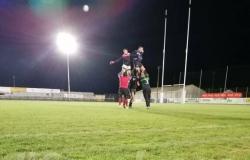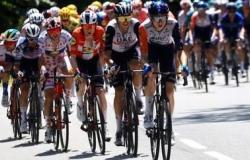AGI – “What can we say then of those who, after having sown the seed, stalk the fields from nearby and level the mounds of slightly greasy earth, and bring running water to the sown crops; and when the parched field suffers the heat with the dying grasses , brings the water down from the edge of the hill? And the water falling between the smooth stones produces a slight murmur and with its jets refreshes the arid fields”: Virgil, in the Georgics, speaks of a time in which harmony between nature and man had not yet broken, and the harshness of the drought could be remedied by bringing the freshness of water from somewhere else not far away.
In the Sicily of this 2024 – the same island to which the Muses the Roman poet addressed in the sign of Theocritus, inventor of bucolic poetry, and where Aeneas traveled – this is no longer the case and June, which should be a month of excitement and preparations for the farmers, sees the combine harvesters stopped and the silence take the place of the roar of the machinery. “I have never seen a drought like this”, says Antonio Li Puma, 82 years old, cereal producer and breeder, looking desolately at the fields of the Lower Madonie valleys: hundreds and hundreds of hectares, as far as the eye can see, almost totally barren. Even those dedicated to fodder and natural pastures, a very hard blow also for animal husbandry.
“Some of the best Sicilian durum wheat, including organic wheat, comes from the areas of Alimena and Bompietro and in general from the Madonie – explains Camillo Pugliesi, president of Cia Western Sicily – but the almost total absence of rain prevailed. This year there is no harvest, not even of fodder, despite all the expenses faced by the producers. Furthermore, expenses have increased significantly compared to other years. No one can afford not to collect a euro after having spent thousands, an intervention is needed of immediate support. There is a serious risk of the closure of many companies and the loss of a very rich cereal and livestock heritage”.
Li Puma has a face that transcends time and could be one of the farmers to whom Hesiod addressed in ‘Works and Days’: “Sow the fallow land when the earth is still light; turn it in spring; tilled even in summer it will not betray your expectations”, wrote the Greek poet, giving precise indications on the timing of work in the countryside. “I have always been a farmer – says Li Puma – and it is the first time I have found myself faced with a situation like this, a drought never seen before. Not only the plants suffer, but also the animals… not even wild boars find food. We have covered all the expenses, but we will not harvest anything, there will not be a grain of wheat. It is the death of the farmer.”
“I have never seen such a bad year – echoes another producer and breeder, Giovanni Folisi – to sow my fields with wheat and fodder I have spent a total of 30 thousand euros and I will get nothing. In fact I now have to buy hay for the animals, the price of which has tripled: for a round bale, if you used to spend 25 euros, now you need 80-100. Aside from the prices, it is still an unsustainable situation, because we have no water to give to our livestock bosses, I had to sell about thirty of them. I don’t know whether to try to hold on any longer or close down.”
“Neither the arrival of spring nor the rainy season escapes you”, writes Hesiod, but among the cereals, those few ears that have managed to sprout are literally empty, so it is not worth threshing: “We should have had plants even one meter high – explains Rosario La Tona, manager of the Agricultural Assistance Center of Bompietro – and instead they barely reach 30 centimeters and those few sprouted ears are empty. It’s a disaster, it’s a product that can’t even be threshed” . “This area – adds Vincenzo Valenti, Cia Basse Madonie representative – has been particularly affected by drought after the very serious fire last summer which devastated hundreds of companies, one catastrophe after another. The greatest criticality at the moment concerns the livestock sector , we risk losing a heritage built over the years and which will already be difficult to rebuild.”





